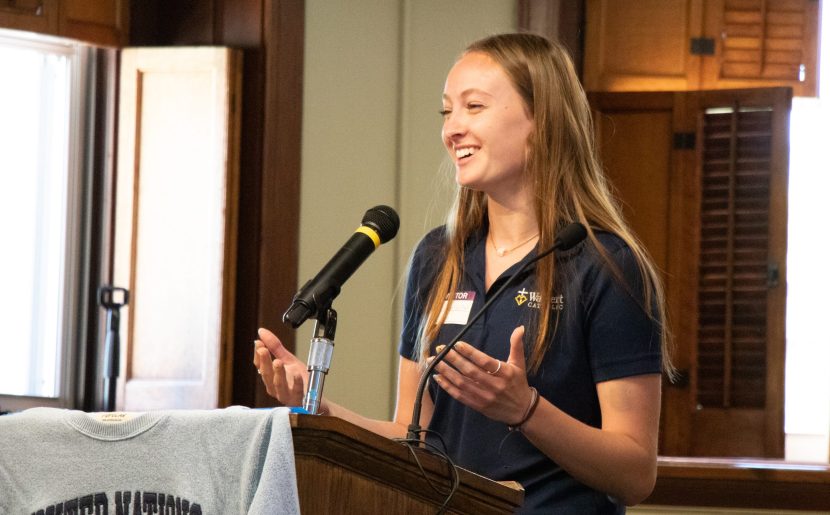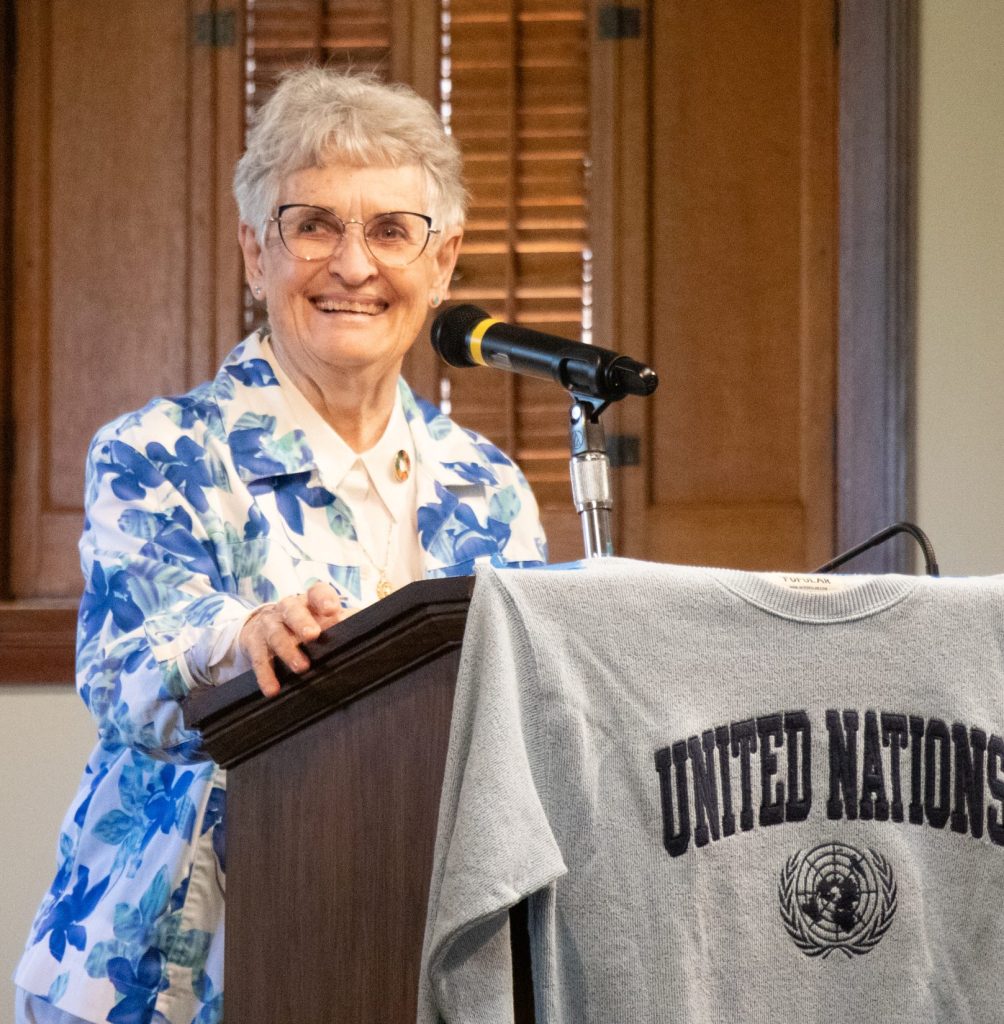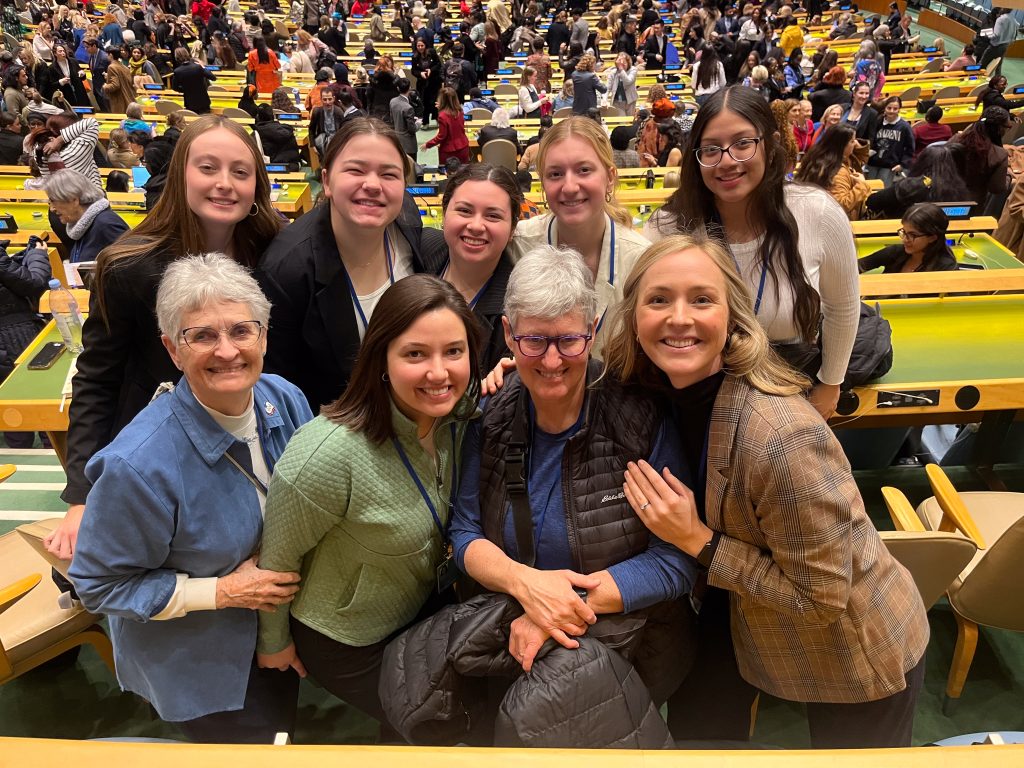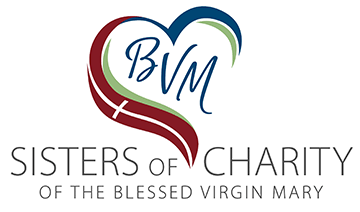A Reflection: 2025 UNCSW

Wahlert student Grace Wethal shares insights from her experience at the CSW69 during a panel discussion at Mount Carmel Bluffs.
by Roberta White, BVM

Being among over 10,000 girls and women from around the world, all working for a better future was one highlight of attending the March UN Commission on the Status of Women (CSW69/Beijing+30) in New York.
A standout moment came during UN Secretary-General António Guterres’ Town Hall in the iconic General Assembly. After a 15-minute overview of 2024–25 women’s issues, he invited comments from the 6,000 attendees.
We were thrilled when our BVM representative, Mariah Reeves, was called to speak. Drawing from her experience as Director of Curriculum and Instruction for the Clinton (Iowa) Community School District, she stressed that education is the key to advancement—locally and globally. We were so proud.
Along with chaperones Natalie Finley and Barbara Ressler, five young women from Dubuque Wahlert Catholic High School also attended. These young women are purposefully responding to global needs as they encountered them at CSW69. Their futures have been shaped by the powerful experiences they had in sessions and through meeting women from Ukraine, South Korea, and around the world.
Back home, they shared reflections during a panel at Mount Carmel Bluffs and with their school’s Social Justice Club:
Olivia Hilby, attending for the second year, felt supported by the teen orientation and inspired by the Town Hall. She noted the Secretary-General’s quote, “Inequality is a question of power,” and was moved by the Girls Run the World session: “When girls lead, the world follows!”
Isabella Park said the experience opened her eyes to global issues and herself. She was struck by the diversity and topics like the “comfort women” of wartime Korea. Excited by a business mentorship program in Greece, she shared, “This UN experience is the highlight of my senior year . . . and it prepares me for college.”
Camryn Theisen was affected by stories of war’s toll on women and children. One heartbreaking example involved landmines picked up by women and children, which then exploded—injuring or killing them. As an athlete, she appreciated sessions on women’s leadership in sports.
Grace Wethal found many sessions impactful, especially on period poverty, which reminded her of Wahlert’s Red Basket Project and their menstrual kit donations to Tanzania. “The world is so big—but also so small!” she said. “I’m so beyond grateful to have experienced so many unique sessions and people at the UN . . . Thank you!”
Paula Ibarra was deeply moved by sessions on Indigenous women and North/South Korea. She was especially affected by the story of Emily Pike, a missing 14-year-old, and by a South Korean woman who had never met her family in the North. Paula remarked that these heartbreaking realities are unfortunately not taught in school.

My hope is enlivened by these young women. As Luana Haupt writes, “Hope is that virtue by which we take responsibility for the future.” Though today’s issues can be discouraging, we find hope in the thousands working at the grassroots level to improve their local communities. We, too, can work for a better world—through our prayers and our actions. Positive actions, no matter how small, change the world—little by little, one person at a time.
And we go farther and faster together. Where girls and women lead, the world follows.
SO LEAD ON, EVERYONE!
